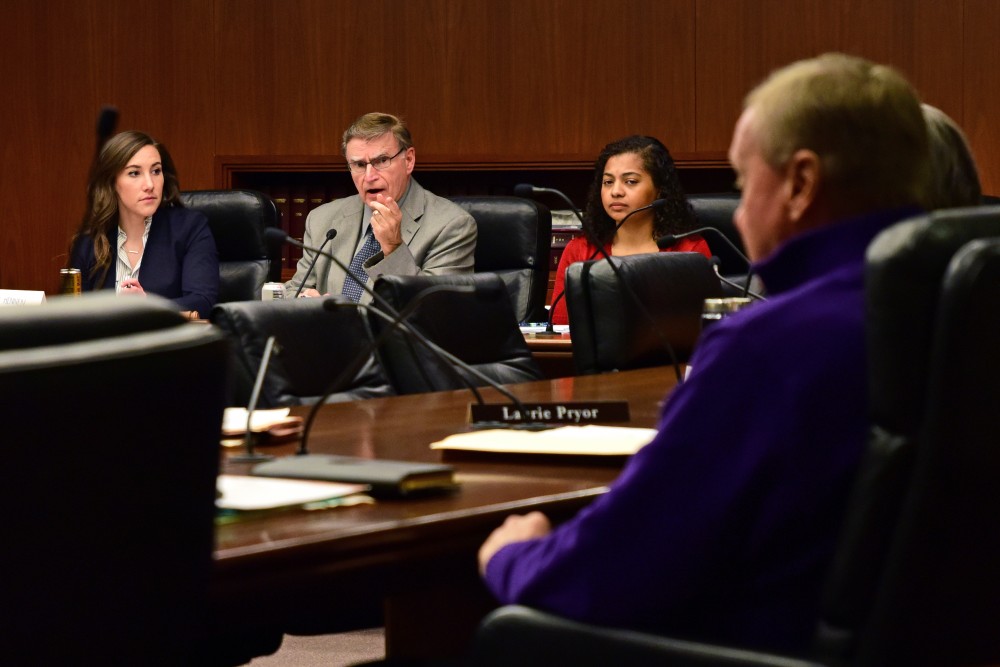State lawmakers are looking to elect a new member to the University of Minnesota’s Board of Regents before the end of the legislative session.
Lawmakers must elect a candidate to replace Regent Patricia Simmons — who announced her resignation last month — before the Legislature adjourns on May 21. If the Legislature doesn’t choose a replacement, DFL Gov. Mark Dayton will temporarily appoint a regent until legislators can do so next session.
Rep. Bud Nornes, R-Fergus Falls, chair of the House higher education committee, said while the circumstances of the election are unusual, lawmakers plan to make a selection on time.
“It’s not often we have somebody in the middle of their term resign,” he said.
Regent elections are typically held in budget years. Next session, four positions on the board will be up for election. If lawmakers don’t choose a replacement for Simmons, her seat will also be open in 2019.
Nornes said the House and Senate higher education committees will meet in the coming weeks to discuss candidates, with a joint committee to elect a regent in May.
Five candidates are currently vying for Simmons’s position:
- Brooks Edwards, a Mayo Clinic cardiologist
- Jeanne Hankerson, an attorney from Owatonna, MN
- Wendy Shannon, director of the Graduate Induction Program at Winona State University
- Randy Simonson, director of Prairie Holdings Group in Worthington, MN
- Mary Davenport, interim president of Rochester Community and Technical College
The Regent Candidate Advisory Council will interview candidates and make a recommendation to the Legislature, but these candidates could differ from those considered by lawmakers.
Simmons served in executive positions at the Mayo Clinic in Rochester. She recently told the Minnesota Daily that her replacement should bring medical expertise to the board.
Sen. David Senjem, R-Rochester, said Edwards would make a good candidate to represent Minnesota’s 1st Congressional District.
“I would say [Edwards] is an organizational leader over at Mayo,” Senjem said. “There’s a history with the University-Mayo relationship. There’s a Mayo building on the University campus. That’s there for a reason.”
Senjem said while the Mayo Clinic connection is only one factor the Legislature should consider, knowledge of the research collaboration between the two institutions has traditionally been a part of the role.
“The collaboration does lend itself to it making some sense that [the regents] have high-level connections,” he said. “So there’s those long standing relationships, and it’s important, frankly, that they be sustained.”
While the RCAC will be involved in the interview process, bills in the House and Senate would alter the committee’s role in the process or eliminate it.
Rep. Gene Pelowski, DFL-Winona, said the candidates the Legislature chooses don’t have to come from the RCAC’s recommendation.
“[The process] has traditionally been somewhat of a mess, and the mess starts with the Regent Candidate Advisory [Council], which has unfortunately become politicized,” he said.
Pelowski said Davenport’s higher education experience will lend itself well to the position.
Before her leadership role at Rochester Community and Technical College, Davenport served as Riverland Community College’s vice president of academic and student affairs.
“Her higher ed background is superb, and I think she would make an excellent regent,” Pelowski said.








